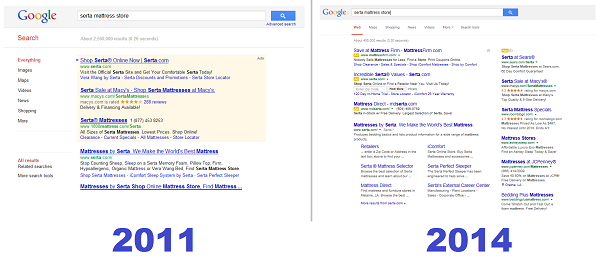
Like finding hidden treasure, search engine optimization (SEO) has never been as easy as some would have you believe. Admittedly, it was easier in the early days of the commercial web. However, recent moves by search engines have made SEO more difficult than ever.
As the number of websites exploded, the search engines responded with increasingly complex algorithms to improve quality of search engine results in an attempt to create a level playing field by preventing SEO spam and rewarding quality websites.
There are four distinct evolutions that have made optimizing a website more challenging.
1. Secure Search & ‘(Not Provided)’
The “(not provided)” issue has frustrated millions of webmasters, marketers, and search professionals. Activity representing users logged into a Google account is exempt from reporting in Google Analytics. As a result, reports reflecting behavior related to search, such as keyword performance, were unavailable to website owners.
In 2013, Google’s move to default secure search meant 90+ percent of keywords were hidden as “(not provided)”. The result? Less data to guide optimization of digital assets for optimum performance. Strategic optimization requires more work than ever – an investment that many are unprepared, or unwilling to invest in, making the case for hiring a truly qualified SEO professional.
2. Google’s New Look Search Results

Google redesigned its search results this month, eliminating the background color behind sponsored listings on search engine results pages. Sponsored listings, generated from AdWords ,are designated with a yellow “Ad” icon that is quite small in context of the desktop display.
The designation of paid vs. organic search is more evident on the mobile display of Google search engine results.

This change is likely designed to promote more clicks on paid results in an attempt to shift user behavior that prefers organic results over sponsored listings.
3. Google is More Revenue Focused Than Ever
Search engine advertising revenue accounts for the lion’s share of Google’s revenue. Unfortunately, the focus on paid has made it tougher on those seeking to appear in organic search engine results, which attracts more clicks from users on search engine results pages.
Despite the dependence of millions of businesses on Google Analytics for organic search insights, the topic was a glaring omission from the 2013 Google Analytics Summit, reinforcing the emphasis on paid search.
While Google continues to enhance Google Analytics, many custom reports and calculations are related to paid advertising. Valuable data remains, however insights most closely related to gaining the full picture of search performance has greatly diminished, encouraging businesses and brands to cultivate insight generated from multiple sources.
Nuggets of information are vital to effective optimization and management of a search engine friendly website that will deliver results.
4. All SEO Providers Aren’t Created Equal
Just about every professional remotely related to the digital space is claiming some level of SEO expertise. Similar to companies that build websites, the marketplace is saturated with companies claiming to provide SEO services.
To be competitive in the job market, many will claim to have SEO skills to get that next role. However, saying and doing are completely different matters.
Businesses who hire these individuals and marketing companies often have little to no knowledge of how SEO really works, which is why they are seeking help. They entrust the performance of the most visible asset of the brand to those claiming SEO expertise. And, despite believing they are being provided quality service – many are met with the harsh reality of website traffic dropping significantly, delisting from search engines, or decline in performance that directly impacts the bottom line.
All SEO providers aren’t equal. Many will put websites at risk with black hat or spammy practices. Unfortunately, search engine algorithms don’t care whether your SEO efforts were unintended or intentional when ranking the website for search.
Competing in Today’s Search Engine Environment
Because there is no definitive guide to search to serve as the treasure map for top positions in search, professionals must seek clues provided by clues provided by the search engines, and insight from their own experience to chart their path.
Total mastery of all digital assets and an intimate understanding of how each element contributes to the performance of a brand in search will help organizations compete and win in today’s highly competitive search engine landscape. Anything short of a truly dedicated effort is sure to miss opportunity to reach new audiences, create new customers, decrease market share, and contribute to the rise of competitors.


